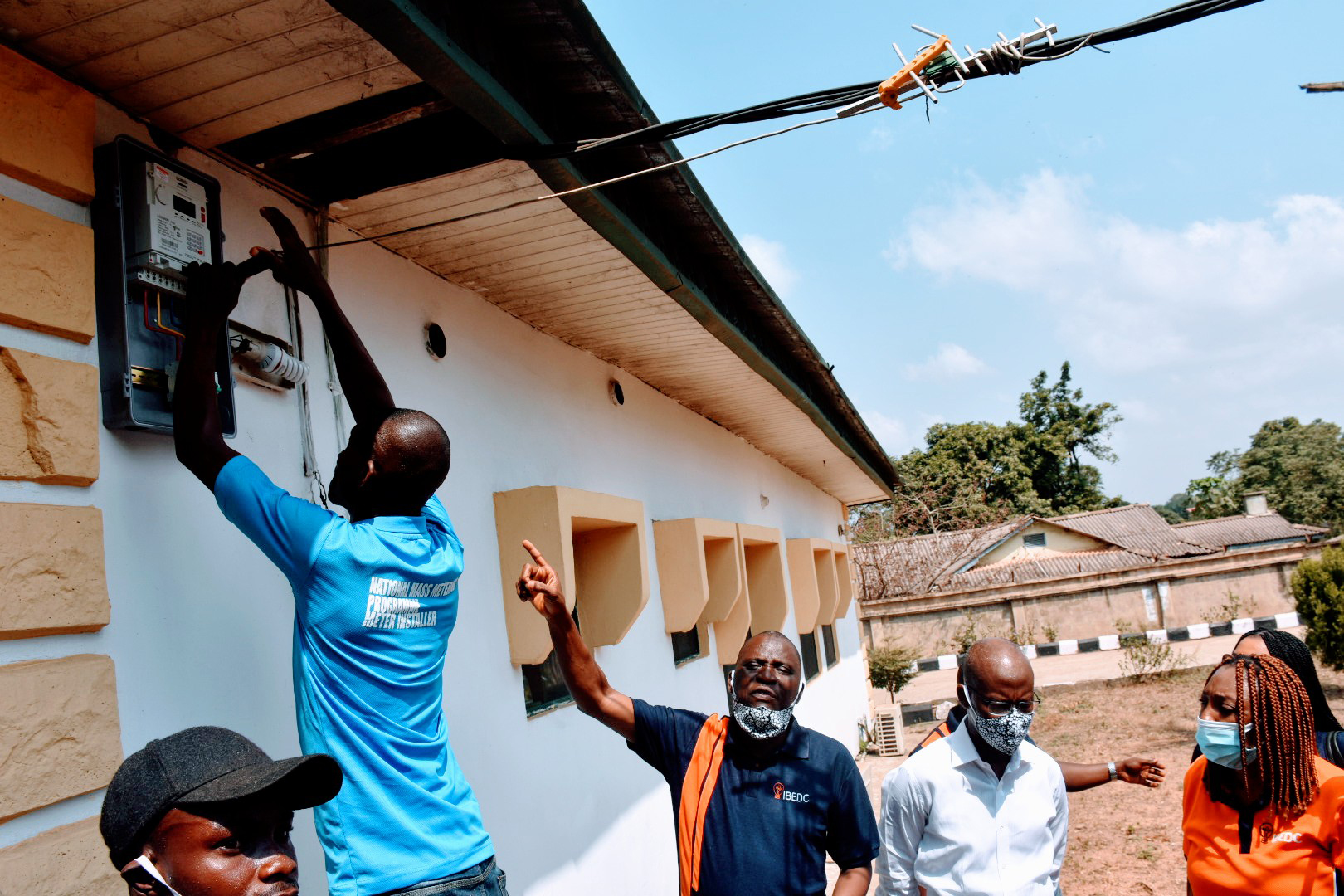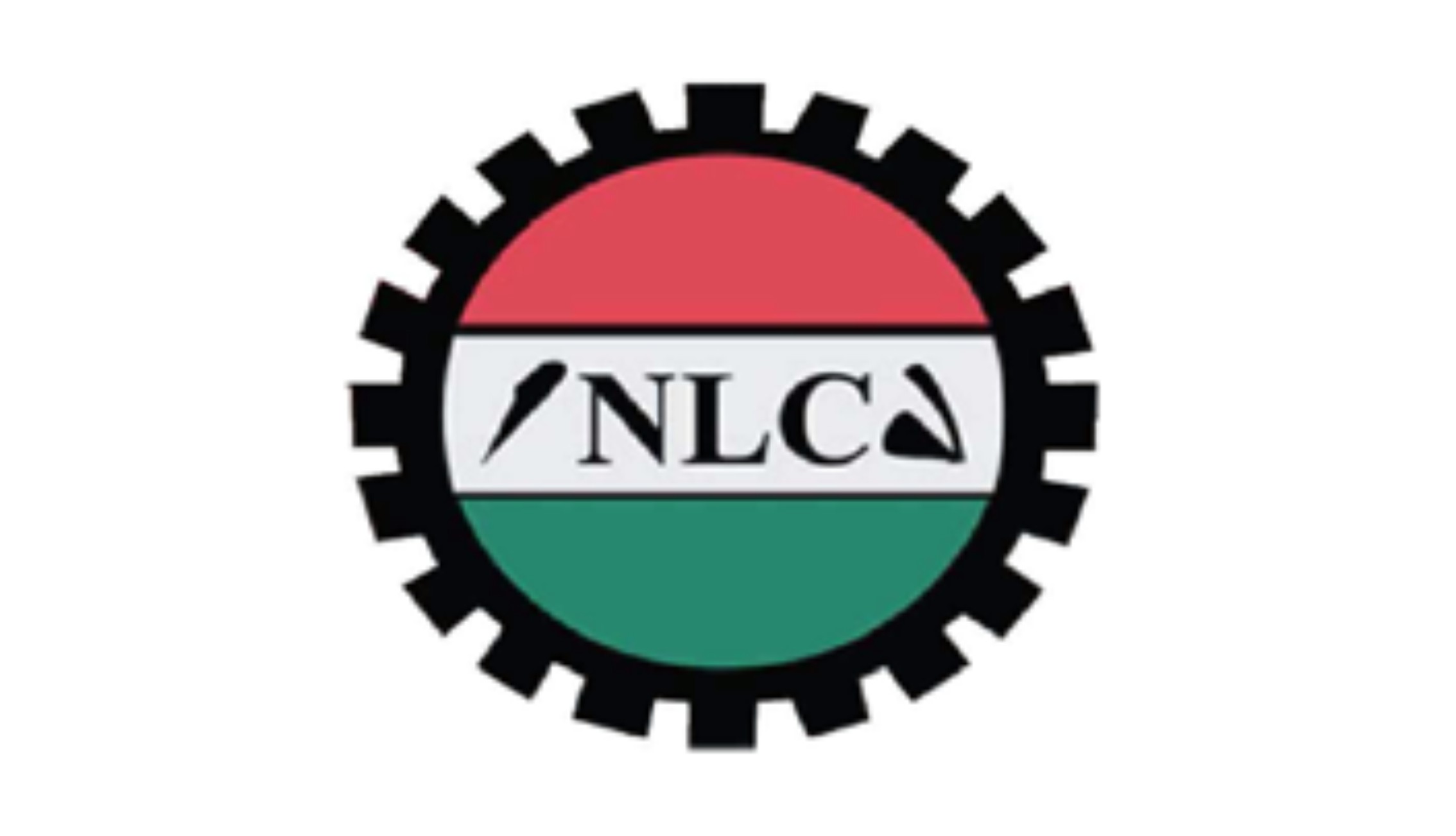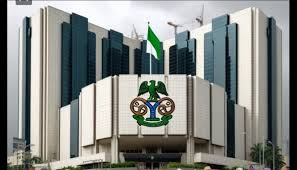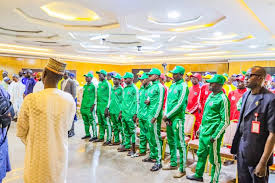Featured
SERAP Sues Buhari Over ‘Unlawful Electricity Tariff Hike’

Socio-Economic Rights and Accountability Project (SERAP) has filed a lawsuit against President Mu hammadu Buhari over “the failure to reverse the unlawful, unjust, and unreasonable increase in electricity tariff and to probe the spending of public funds as ‘investments and bailouts’ to DisCos and GenCos since 2005.”
Joined in the suit as Respondents are the Attorney-General of the Federation and Minister of Justice, Abubakar Malami (SAN), the Nigerian Electricity Regulatory Commission (NERC), and the Nigeria Bulk Electricity Trading PLC.
Following reported approval by the NERC, electricity tariffs were increased across DisCos in the country in December 2022.
Several prepaid customers have reportedly confirmed the increase.
The minister of power and NERC have refused to confirm or deny the increase.
In the suit number FHC/L/CS/99/2023 filed, last Friday, at the Federal High Court, Lagos, SERAP is asking the court to “compel President Buhari to direct the Nigerian Electricity Regulatory Commission to reverse the unlawful, unjust and unreasonable increase in electricity tariff.”
SERAP is also asking the court to “compel President Buhari to direct the Attorney General of the Federation and Minister of Justice, Mr Abubakar Malami, SAN, and appropriate anti-corruption agencies to promptly investigate the spending of public funds as investments and bailouts to DisCos and GenCos since 2005.”
In the suit, SERAP is arguing that, “Regular and uninterrupted access to electricity is a fundamental human right. Electricity is an essential public service but millions of Nigerians continue to pay the price for corruption in the electricity sector–staying in darkness.”
SERAP is also arguing that, “the increase in electricity tariff failed to follow due process of law. It is entirely inconsistent and incompatible with the provisions of the Nigerian Constitution of 1999 [as amended], the Electric Power Sector Reform Act and the country’s international human rights obligations.”
SERAP is also arguing that, “the increase is unjustified, especially given the unreliable, inefficient and poor quality of electricity in the country. Millions of Nigerians continue to live in darkness despite the spending by governments of trillions of naira as investments and bailouts to electricity companies.”
According to SERAP, “The Federal Government has a legal responsibility to ensure transparency and accountability in how the investments and bailouts to electricity companies are spent, to reduce vulnerability to corruption and mismanagement.”
SERAP is also arguing that, “The government has legal obligations to effectively and progressively provide affordable, regular and uninterrupted access to electricity as a matter of human rights.”
The suit filed on behalf of SERAP by its lawyers, Kola wole Oluwadare and Ms Ad elanke Aremo, read in part: “The increase in electricity tariff would exacerbate the extreme poverty across the country, and undermine the ability of millions of Nigerians to satisfy basic human needs.
“The consequences of corruption in the electricity sector are felt by citizens on a daily basis. Corruption exposes them to pay additional costs and crazy electricity bills. Electricity supply remains inadequate and irregular.
“Investigating the allegations of corruption in the spending on the investments and bailouts to electricity companies, and recovering any stolen public funds would serve the public interest.
“The government has a sacred duty to ensure transparency and accountability in the spending of the country’s resources, including the spending of public funds as investments and bailouts to electricity companies.
“The latest increase in electricity tariff is coming on the heels of the NBC report which shows that over half of the population of Nigeria are multi-dimensionally poor and cook with dung, wood or charcoal, rather than cleaner energy.
“High deprivations are also apparent nationally in sanitation, time to healthcare, food insecurity, and housing. Access to regular electricity supply would improve the quality of life of the population.
“Access to affordable electricity services is a prerequisite for improving the condition of people living in poverty. It is a means to generate other important services that mitigate poverty, bearing in mind that access to electricity facilitates the eradication of poverty.
“The hike in tariff would increase financial burdens for socially and economically vulnerable Nigerians and further marginalise and disproportionately affect them, and exacerbate their vulnerability to discrimination.
“The failure of successive governments and high-ranking government officials to prevent widespread and systematic corruption in the electricity sector and to bring suspected perpetrators to justice is the primary cause of the exploitation of electricity consumers.
“Investigating the spending of investments and bailouts by successive governments in DisCos and prosecuting anyone suspected of corruption and mismanagement of public funds, and recovering any proceeds of crime would end a culture of impunity in the power sector, and improve access to and affordability of electricity in Nigeria.
“Successive governments have failed to increase power generation and provide Nigerians with regular and uninterrupted electricity supply, with many electricity contracts shrouded in secrecy, and trillions of Naira going down the drain.
“SERAP is also asking the court to ‘compel President Buhari to ensure the prosecution of anyone suspected to be responsible for misappropriation of investments and bailouts in the power sector, if there is sufficient admissible evidence, and any missing public funds should be traced and fully recovered.
“SERAP is also asking the court to ‘compel and direct the Nigerian Electricity Regulatory Commission to reverse the unlawful, unjust and unreasonable increase in electricity tariff, which reportedly occurred in December 2022.
“Section 14(2)(b) of the Nigerian Constitution of 1999 [as amended] provides that, ‘the security and welfare of the people shall be the primary purpose of government.’
“Nigeria has also ratified the African Charter on Human and Peoples’ Rights and the International Covenant on Economic, Social and Cultural Rights, which recognse legally enforceable economic and social rights, such as the rights to education, health, safe food and clean water, security, and shelter.
“Articles 5 and 9 of the UN Convention against Corruption also impose legal obligations on the government to ensure proper management of public affairs and public funds, and to promote sound and transparent administration of public affairs.
“The African Commission on Human and Peoples’ Rights has adjudged the failure of the states to provide basic services such as electricity as violating the right to health.”
No date has been fixed for the hearing of the suit.
Featured
RSG Commits To Workers’ Welfare …. Calls For Sustained Govt, Labour Partnership

The Administrator of Rivers State, Retired Vice Admiral Ibok-Ete Ekwe Ibas, has assured the commitment of Rivers State government to workers’s welfare and industrial harmony in Rivers State.
The Sole Administrator gave the assurance after meeting with leadership of organized labour unions at the Government House, Port Harcourt on Wednesday.
Ibas reaffirmed government’s policy of prompt payment of salaries and pensions to workers and retirees, stating that all local government employees are not receiving the approved minimum wage.
He disclosed that approval has been given for payment of newly employed staff at Rivers State University Teaching Hospital and the Judiciary, while medical workers in Local Government Areas will now receive correct wages.
Ibas explained that, Government is reviewing implementation challenges of the Contributory Pension Scheme ahead of the July 2025 deadline, adding that Intervention buses have been reintroduced to ease workers’ transportation ,with plans to expand the fleet.
He said specialized leadership training for top civil servants will commence within two weeks, while due consideration is being given to implementing the N32,000 consequential adjustment for pensioners and clearing outstanding gratuities.
Ibas commended Rivers State workers for their dedication to service and called for sustained partnership with labour unions to maintain industrial peace.
“This administration recognizes workers as critical partners in development. We remain committed to addressing your legitimate concerns within available resources,” he stated.
The State NLC Chairman, Comrade Alex Agwanwor, thanked the Administrator for the steps taken so far with regard to workers welfare while appreciating his disposition towards alleviating the transportation problem faced by workers.
He also expressed appreciation for the government’s openness to dialogue and pledged continued cooperation towards achieving mutual goals.
The Rivers State Government assured all workers of its unwavering commitment to their welfare and called for continued dedication to service delivery for the collective progress of our dear State.
Featured
Labour Unions In Rivers Call For Improved Standard Living For Workers

The Nigeria Labour Congress (NLC), Rivers Council, has called for policies that will improve the economic situation of the country in order to ensure enhanced living standard for workers.
The State Chairman, Mr Alex Agwanwor, made the remark on behalf of the unions affiliated to Labour Congress during the 2025 workers day celebration in Port Harcourt, yesterday.
Agwanwor highlighted the demands of the Unions which included the immediate payment of pension arrears, implementation of the N32,000 minimum wage for pensioners, and payment of gratuities and death benefits without further delay.
“We are calling for the regulation and protection of e-hailing drivers, implementation of increments and promotions, and resolution of long-standing issues in the polytechnic sector,” he said.
Agwanwor on behalf of the unions appealed to President Bola Tinubu to reinstate the democratically elected Governor, Deputy Governor, and members of the Rivers State House of Assembly.
He stressed the importance of democratic governance and good working relationship with elected representatives.
According to him, the unions expressed disappointment over the imposition of taxes, increase in electricity tariff, and high cost of goods and services, which have further worsened the plight of workers.
“We urge the federal government to take measures to alleviate the suffering of citizens,” he said.
Featured
Tinubu committed to unlocking Nigeria’s potential – Shettima

Vice-President Kashim Shettima says President Bola Tinubu is committed to unlocking Nigeria’s full potential and position the country as a leading force on the African continent.
Shettima stated this when he hosted a delegation from the Hertie School of Governance, Berlin, led by its Senior Fellow, Dr Rolf Alter, at the Presidential Villa in Abuja last Wednesday.
He said Nigeria was actively seeking expertise from the global best institutions to enhance policy formulation and implementation, particularly in human capital development.
The Vice-President noted that President Tinubu was determined to elevate Nigeria to its rightful position as a leading force in Africa.
“The current crop of leadership in Nigeria under President Bola Ahmed Tinubu is ready and willing to unleash the full potential of the Nigerian nation on the African continent.
” We are laying the groundwork through strategic reforms, and at the heart of it, is human capital development.”
He described the Hertie School as a valuable partner in the journey.
According to him, Hertie School of Governance, Berlin, has track record and institutional knowledge to add value to our policy formulation and delivery, especially in this disruptive age.
Shettima reiterated the government’s priority on upskilling Nigerians, saying ” skills are very important, and with our Human Capital Development (HCD) 2.0 programme.
“We are in a position to unleash the full potential of the Nigerian people by enhancing their capital skills.”
The Vice-President acknowledged the vital support of international development partners in that effort.
” I want to thank the World Bank, the European Union, the Bill and Melinda Gates Foundation, and all our partners in that drive to add value to the Nigerian nation,” he maintained.
The Vice-President said human capital development was both an economic imperative and a social necessity.
Shettima assured the delegation of the government’s readiness to deepen cooperation.
” We need the skills and the capacity from your school. The world is now knowledge-driven.
“I wish to implore you to have a very warm and robust partnership with the government and people of Nigeria.”
Shettima further explained recent economic decisions of the government, including fuel subsidy removal and foreign exchange reforms.
“The removal of fuel subsidy, the unification of the exchange rate regime and the revolution in the energy sector are all painful processes, but at the end of the day, the Nigerian people will laugh last.
“President Tinubu is a very modern leader who is willing to take far-reaching, courageous decisions to reposition the Nigerian economy,” he added.
Earlier, Alter, congratulated the Tinubu administration for the successful launch and implementation of the Human Capital Development (HCD) strategy.
The group leader described the development as ambitious and targeted towards the improvement of the lives of the citizens.
He expressed satisfaction with the outcome of his engagements since arriving in the country.
He applauded the zeal, commitment, energy and goodwill observed among stakeholders in the implementation of Nigeria’s HCD programme.
Alter said the Hertie School of Governance would work closely with authorities in Nigeria across different levels to deliver programmes specifically designed to address the unique needs of the country.
He, however, stressed the need for government officials at different levels to be agile and amenable to the dynamics of the evolving world, particularly as Nigeria attempted to successfully accelerate its human capital development aspirations.
-

 News10 hours ago
News10 hours agoSERAP Gives CBN Seven Days Ultimatum To Disclose Allocation Disbursements To 774 LGAs
-

 Editorial4 hours ago
Editorial4 hours agoEnd The Senseless Killings
-

 Sports10 hours ago
Sports10 hours agoTeam Sleeps At Facility After Attack
-

 Business4 hours ago
Business4 hours agoNigeria’s Debt Servicing Gulped N696bn In Jan – CBN
-

 News4 hours ago
News4 hours agoTroops Eliminate Boko Haram Fighters, Capture Weapons In Sambisa Offensive
-

 Rivers3 hours ago
Rivers3 hours agoExpert Demands Full Implementation Of PIA In N’Delta Oil Communities
-

 News10 hours ago
News10 hours agoFalana Demands Probe Of Alleged Diversion Of $3.4bn IMF Loan
-

 Politics4 hours ago
Politics4 hours agoYouth Group Warns Against Politicising Governance In Zamfara









